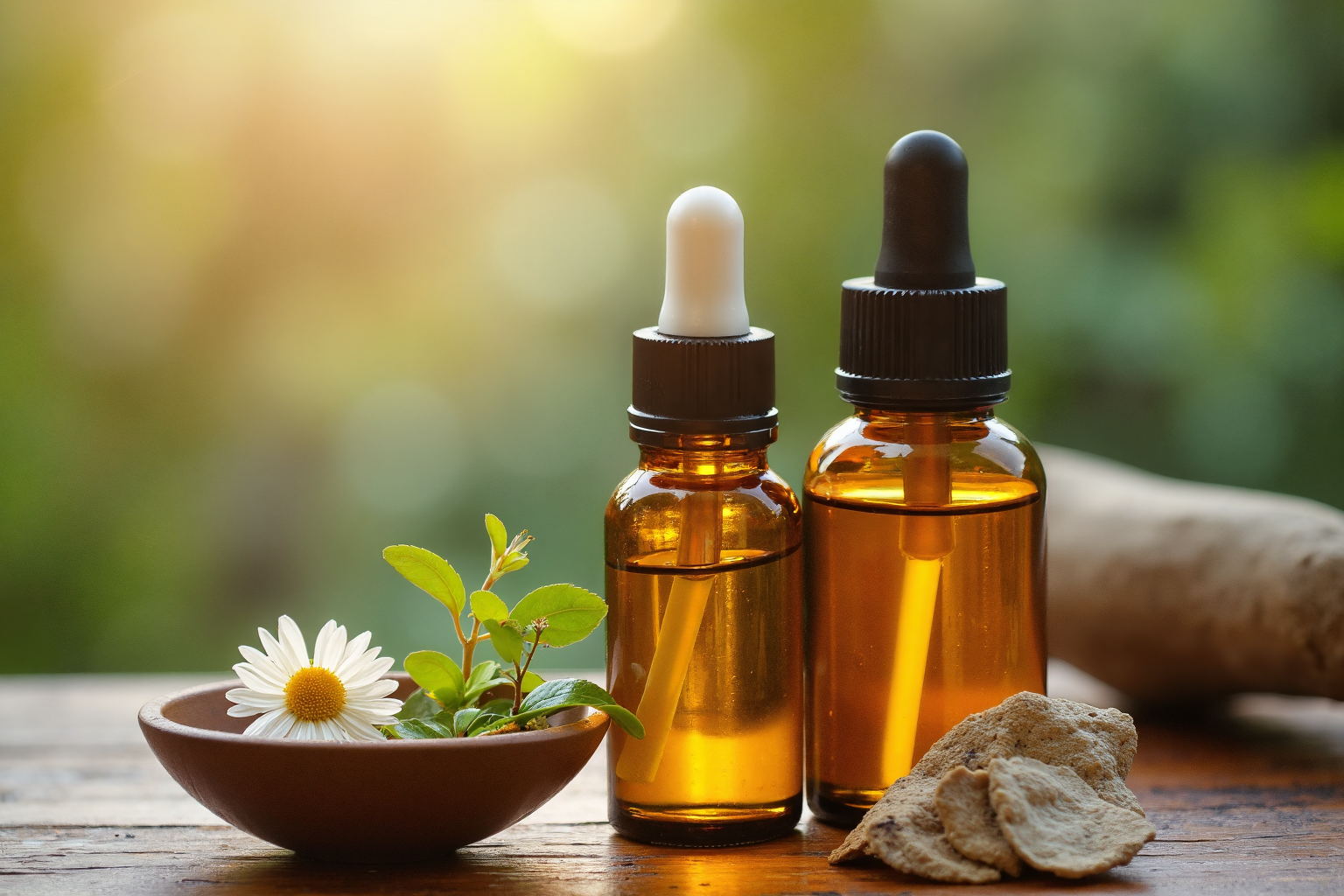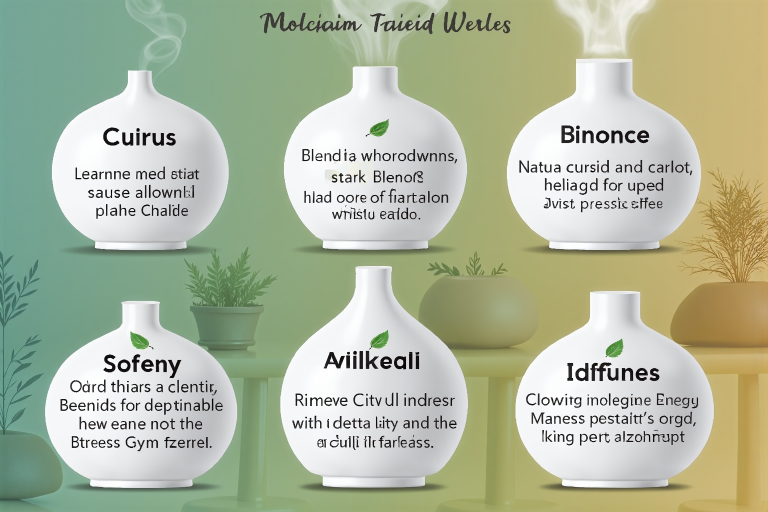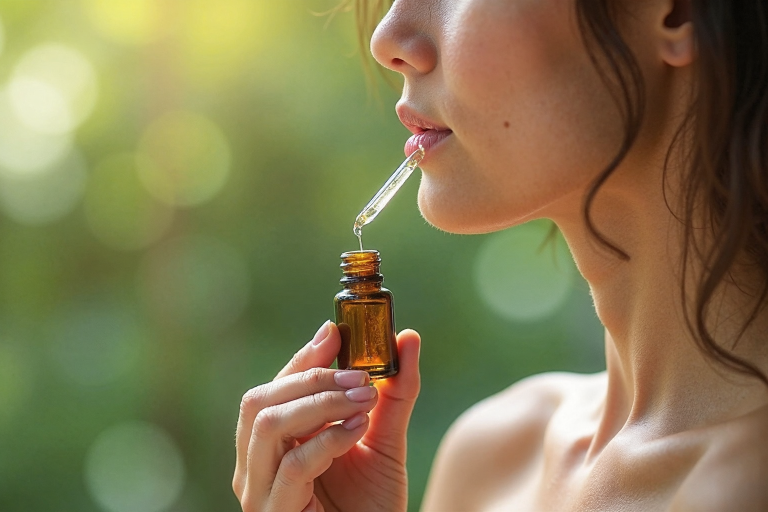Exploring the Professional Applications of Aromatherapy for Enhanced Wellness
The Rise of Professional Aromatherapy
Aromatherapy, the art and science of utilizing plant-derived essential oils for therapeutic purposes, has evolved significantly beyond its traditional association with perfumes and fragrances. It is now recognized as a powerful modality within professional wellness settings, offering a diverse range of applications for enhancing physical, emotional, and mental well-being. From stress reduction and pain management to sleep improvement and enhanced cognitive function, the science-backed benefits of aromatherapy are attracting increasing attention from healthcare professionals, wellness practitioners, and individuals seeking natural and holistic health solutions.
The fragrant power of essential oils, extracted from flowers, leaves, bark, and roots, interacts with the body’s olfactory system, triggering physiological and psychological responses. This intricate connection between scent and well-being forms the foundation of professional aromatherapy. The shift towards integrative healthcare has further propelled the integration of aromatherapy into professional settings. As the demand for complementary and alternative therapies grows, aromatherapy has emerged as a valuable tool for supporting conventional medical treatments and promoting holistic wellness.
Clinical aromatherapy, practiced by trained healthcare professionals, incorporates essential oils into patient care to alleviate symptoms, improve quality of life, and enhance overall well-being. In spa settings, aromatherapy complements massage and body treatments, creating a synergistic effect that promotes relaxation, reduces stress, and enhances the therapeutic experience. The versatility of aromatherapy extends beyond clinical and spa environments, finding applications in corporate wellness programs, educational institutions, and even within the home. The efficacy of aromatherapy lies in the complex chemical composition of essential oils.
Each essential oil possesses a unique blend of therapeutic compounds, such as terpenes, phenols, and esters, that interact with the body’s systems in specific ways. Lavender oil, renowned for its calming properties, has been shown to promote relaxation, reduce anxiety, and improve sleep quality. Peppermint oil, with its invigorating aroma, can enhance focus, alleviate headaches, and promote digestive health. Tea tree oil, known for its antiseptic properties, is often used in skincare to treat blemishes and promote healing.
The scientific understanding of these therapeutic properties is constantly evolving, with ongoing research further validating the efficacy of aromatherapy for various conditions. For individuals seeking a career in aromatherapy, numerous educational pathways and certifications exist. Reputable organizations offer specialized training programs that cover essential oil chemistry, therapeutic applications, safety guidelines, and business practices. Obtaining professional aromatherapy certification ensures a high level of competency and professionalism, enabling practitioners to integrate aromatherapy effectively and safely into their chosen field.
This commitment to education and ethical practice is crucial for maintaining the integrity of professional aromatherapy and ensuring its continued growth as a respected wellness modality. The field of professional aromatherapy offers diverse and rewarding career opportunities. Clinical aromatherapists work alongside healthcare professionals in hospitals, clinics, and integrative health centers. Spa therapists incorporate essential oils into massage and body treatments to enhance relaxation and therapeutic benefits. Product developers create aromatherapy-based products for personal care, home fragrance, and wellness applications. Entrepreneurs can establish their own aromatherapy practices, offering personalized consultations and customized blends. As the demand for natural wellness solutions continues to grow, the future of professional aromatherapy appears bright, with expanding opportunities for skilled and passionate practitioners to make a positive impact on the health and well-being of others.
Science-Backed Benefits and Applications
The efficacy of professional aromatherapy is deeply rooted in the intricate chemical compositions of essential oils, which, upon inhalation or topical application, engage with the body’s olfactory system and various physiological pathways. These interactions are not merely sensory experiences; they trigger a cascade of biological responses that can influence mood, stress levels, and even physical health. For example, studies have consistently demonstrated the anxiolytic effects of lavender, attributed to its linalool and linalyl acetate content, which interact with neurotransmitter systems to promote relaxation and improve sleep architecture.
Similarly, peppermint oil, rich in menthol, has been shown to effectively alleviate tension headaches by modulating pain pathways and promoting vasodilation. These findings underscore the scientific basis for aromatherapy’s therapeutic potential, moving it beyond anecdotal evidence into the realm of evidence-based practice within holistic wellness. Further bolstering the claims of aromatherapy benefits are numerous clinical trials and case studies that validate its effectiveness in diverse healthcare settings. In the context of clinical aromatherapy, essential oils are being integrated into pain management protocols, particularly for chronic conditions like arthritis and fibromyalgia.
Specific blends, such as those incorporating frankincense and ginger, have demonstrated anti-inflammatory properties and analgesic effects, offering a natural alternative to traditional pain medications. Moreover, aromatherapy is increasingly being utilized in mental health settings to manage anxiety, depression, and post-traumatic stress disorder (PTSD). The calming effects of chamomile and bergamot, for instance, are being harnessed to create supportive environments for patients undergoing therapy, highlighting the role of aromatherapy in integrative health approaches. These applications showcase the versatility of aromatherapy as a complementary therapy.
The application of essential oils extends beyond clinical settings into the realm of spa therapy, where they are integral to enhancing the overall wellness experience. Aromatherapy massages, for instance, combine the therapeutic benefits of touch with the aromatic power of essential oils, creating a synergistic effect that promotes deep relaxation and muscle tension release. Essential oils such as eucalyptus and rosemary are often used to invigorate and improve circulation, while others like sandalwood and ylang-ylang are selected for their calming and mood-enhancing properties.
The selection of specific essential oils is often customized to address the individual needs and preferences of clients, reflecting the holistic approach of spa therapy. This personalized approach underscores the importance of proper aromatherapy certification for professionals seeking to offer these services. The growing demand for natural wellness solutions has also fueled the expansion of aromatherapy into product development. Many companies are now creating aromatherapy-based products for personal care and home use, ranging from essential oil blends and diffusers to skincare products and bath salts.
The market for these products is substantial, with consumers increasingly seeking alternatives to synthetic fragrances and chemical-laden products. However, this expansion also necessitates a greater emphasis on quality control and safety guidelines. Professional aromatherapists play a crucial role in ensuring that these products are formulated with appropriate concentrations of essential oils and are safe for consumer use. This aspect of the aromatherapy career highlights the importance of ethical and responsible practices within the industry. The future of aromatherapy is intertwined with the continued research into the therapeutic potential of essential oils, paving the way for new applications and innovative approaches to natural wellness. As the field continues to evolve, the need for qualified professionals with proper aromatherapy certification will only continue to grow.
Charting a Career in Aromatherapy
For those seeking a career in the burgeoning field of professional aromatherapy, a variety of educational pathways and certifications exist, offering diverse avenues to cultivate expertise in this increasingly popular wellness modality. Aspiring aromatherapists can pursue specialized training programs accredited by reputable organizations such as the National Association for Holistic Aromatherapy (NAHA) and the Alliance of International Aromatherapists (AIA). These programs provide comprehensive curricula covering essential oil chemistry, therapeutic applications, safety guidelines, and the business practices necessary for establishing a successful aromatherapy practice.
Certification, a crucial step in building a credible career, ensures a demonstrably high level of competency and professionalism, enabling practitioners to confidently and safely offer effective aromatherapy services. It signifies a commitment to best practices and ethical standards, fostering trust among clients and colleagues alike. These programs delve into the intricate world of essential oils, exploring their chemical composition, extraction methods, and therapeutic properties. Students gain a deep understanding of how essential oils interact with the body’s physiological systems, including the olfactory system, which plays a crucial role in aromatherapy’s effects on mood, emotions, and overall well-being.
Practical training is an integral part of these programs, allowing students to develop hands-on skills in blending essential oils for specific therapeutic purposes, such as stress reduction, pain management, and sleep improvement. For instance, students learn how to create customized blends using lavender for relaxation, peppermint for invigorating the senses, and tea tree for its antiseptic properties. They also learn about contraindications and safety precautions, ensuring the responsible and effective use of essential oils in various settings, including spa therapy, clinical aromatherapy, and holistic wellness practices.
Beyond the foundational knowledge of essential oils, aromatherapy certification programs also emphasize the importance of client consultation and assessment. Aspiring aromatherapists learn how to gather comprehensive health histories, identify individual needs, and develop personalized aromatherapy treatment plans. This holistic approach acknowledges the interconnectedness of mind, body, and spirit, aligning with the principles of integrative health and alternative medicine. Furthermore, business skills are often incorporated into the curriculum, equipping graduates with the tools to launch and manage their own aromatherapy businesses.
Topics may include marketing strategies, client communication, ethical considerations, and legal requirements. This comprehensive training prepares graduates for diverse career paths, ranging from private practice and spa therapy to product development and corporate wellness programs. The field of aromatherapy is constantly evolving, with ongoing research continually unveiling new insights into the therapeutic potential of essential oils. Staying abreast of the latest scientific advancements is crucial for professional aromatherapists, ensuring they can provide evidence-based care and integrate cutting-edge knowledge into their practice.
Professional organizations like NAHA and AIA offer continuing education opportunities, conferences, and publications to support lifelong learning and professional development within the field. By combining rigorous scientific knowledge with a holistic understanding of wellness, certified aromatherapists play a vital role in empowering individuals to achieve optimal health and well-being through the natural power of essential oils. From incorporating essential oils into massage and body treatments to developing personalized aromatherapy blends for specific health concerns, these professionals contribute to the growing field of integrative health, offering valuable expertise in the therapeutic applications of essential oils for enhanced wellness.
The growing demand for natural wellness solutions and holistic health practices has created a wealth of opportunities for certified aromatherapists. Integrating seamlessly into various professional settings, including spas, wellness centers, hospitals, and private practices, these skilled practitioners offer valuable expertise in the therapeutic applications of essential oils. Clinical aromatherapists, for example, work alongside healthcare professionals to integrate aromatherapy into patient care, enhancing conventional treatments and promoting holistic well-being. In the spa industry, aromatherapists utilize essential oils in massage and body treatments, creating relaxing and therapeutic experiences for clients seeking natural wellness solutions. The field also offers opportunities in product development, research, and education, further expanding the reach and impact of professional aromatherapy in the broader wellness landscape.
Diverse Career Paths and Opportunities
The field of professional aromatherapy offers a diverse and increasingly sought-after range of career opportunities. From clinical settings to the spa industry and entrepreneurial ventures, trained aromatherapists are finding innovative ways to integrate the therapeutic power of essential oils into various wellness practices. Clinical aromatherapists, for instance, work alongside healthcare professionals in hospitals, clinics, and integrative health centers to incorporate aromatherapy into patient care plans. This may involve using essential oils like lavender or chamomile to alleviate anxiety and promote relaxation before or after surgical procedures, or utilizing peppermint oil to ease nausea and discomfort.
Aromatherapy certification is often a prerequisite for these roles, ensuring practitioners possess a thorough understanding of essential oil safety, therapeutic applications, and evidence-based practices. Spa therapists represent another significant career path within aromatherapy. They skillfully utilize essential oils in massage therapy, body treatments, and facials to enhance relaxation, relieve muscle tension, and promote overall well-being. A spa setting allows for creative blending of essential oils like ylang-ylang and bergamot to create personalized aromatherapy experiences tailored to individual client needs.
The growing consumer demand for natural and holistic wellness solutions has spurred the development of a burgeoning aromatherapy product market. Product developers with expertise in aromatherapy play a crucial role in creating essential oil blends, diffusers, topical creams, and other aromatherapy-based products for personal care and home use. These professionals combine their knowledge of essential oil chemistry and therapeutic properties with market trends to formulate safe and effective products that meet consumer demand for natural wellness solutions.
The entrepreneurial spirit thrives within the field of aromatherapy, offering opportunities for individuals to establish their own aromatherapy practices or businesses. This could involve offering personalized aromatherapy consultations, developing customized essential oil blends, or creating educational workshops and online courses. Entrepreneurs in this space can leverage their aromatherapy certification and expertise to build successful businesses that cater to the growing interest in holistic health and natural wellness. Furthermore, the rise of integrative health practices has opened doors for aromatherapists to collaborate with other wellness professionals, such as acupuncturists, massage therapists, and naturopathic doctors, to provide comprehensive and holistic care. This collaborative approach allows for a synergistic blend of modalities, offering clients a more integrated and personalized wellness experience. As the field of aromatherapy continues to evolve, so too will the career opportunities it presents. With a solid foundation in aromatherapy principles, a commitment to ongoing education, and a passion for natural wellness, aspiring aromatherapists can find fulfilling and impactful career paths within this dynamic and expanding field.
The Future of Aromatherapy and Conclusion
As the demand for natural wellness solutions continues its upward trajectory, the future of professional aromatherapy appears exceptionally promising, with significant growth projected across various sectors. Ongoing research into the complex chemistry of essential oils is not only validating traditional uses but also uncovering novel applications, thereby expanding the scope of aromatherapy benefits. For instance, recent studies have explored the efficacy of specific essential oil blends in managing chronic pain and anxiety, offering integrative health options that complement conventional medical treatments.
This increasing body of evidence is bolstering the credibility of aromatherapy, encouraging its adoption within mainstream healthcare settings and driving the need for qualified professionals. Within the spa and wellness industry, the integration of aromatherapy is becoming increasingly sophisticated. Spa therapists are not merely using essential oils for their fragrance but are now tailoring treatments based on individual client needs, leveraging the specific therapeutic properties of each oil. This personalized approach, often guided by a thorough client consultation and understanding of aromatherapy principles, is enhancing the efficacy of spa experiences and contributing to a more holistic wellness journey.
Similarly, the rise of aromatherapy in product development is noteworthy, with companies increasingly focusing on creating natural and sustainable products that harness the power of essential oils for skincare, haircare, and home fragrance, reflecting a broader consumer shift towards natural and alternative medicine. The path to a successful aromatherapy career is increasingly formalized, with rigorous aromatherapy certification programs gaining recognition and credibility. These programs, often offered by accredited institutions, provide comprehensive training in essential oil chemistry, therapeutic applications, safety protocols, and business management.
Aspiring aromatherapists are now equipped with the knowledge and skills necessary to practice professionally, whether they choose to work in a clinical setting, a spa, or as an independent consultant. The growing emphasis on professional standards and ethical practices within the field is ensuring that clients receive safe, effective, and evidence-based aromatherapy treatments. This also supports the growth of clinical aromatherapy, where qualified professionals collaborate with healthcare teams to provide integrative care. The diverse career paths available to those with aromatherapy certification are expanding rapidly.
Clinical aromatherapists are increasingly sought after in hospitals and rehabilitation centers, where they work alongside doctors and nurses to address patients’ needs through aromatherapy. The role of aromatherapy in palliative care, for example, is gaining recognition, with essential oils being used to manage pain, anxiety, and nausea. In addition to clinical settings, many aromatherapists find fulfilling careers in spas, wellness centers, and private practice, offering personalized treatments and consultations. The entrepreneurial spirit is also alive in the field, with many aromatherapists launching their own product lines or educational programs, contributing to the overall growth and accessibility of aromatherapy.
This wide range of options makes an aromatherapy career a viable and rewarding option for those passionate about holistic wellness. In conclusion, the future of professional aromatherapy is not only bright but also increasingly integrated into the fabric of modern wellness practices. The confluence of scientific research, consumer demand for natural wellness solutions, and the expansion of professional opportunities is creating a robust and dynamic field. By embracing evidence-based practices, prioritizing safety, and continuing to explore the vast potential of essential oils, aromatherapy professionals are poised to play a crucial role in empowering individuals to achieve optimal health and well-being. Whether you are an established healthcare professional, a spa therapist, or simply someone intrigued by the power of nature, exploring the world of aromatherapy offers a path toward a more balanced and holistic approach to health.






